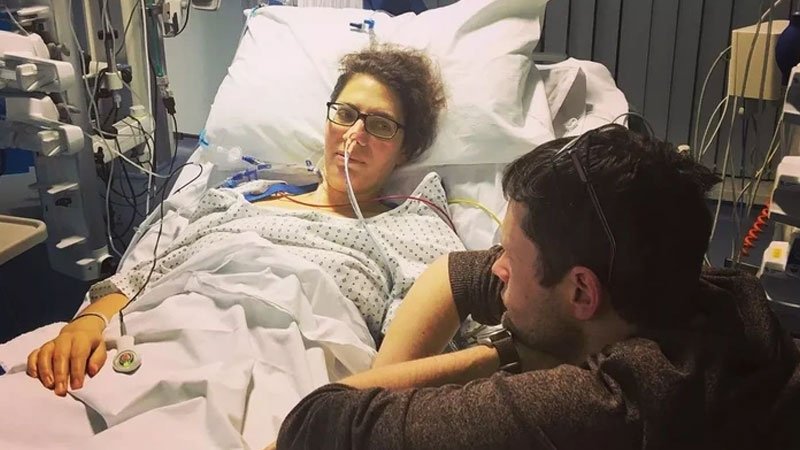
Getty Image
A mum who thought she would only see one more Christmas after doctors said she had just 12 weeks to live is warning others of the symptoms of pancreatic cancer. Bryony Thomas, 46, was diagnosed back in December 2019 but is now celebrating being five years cancer-free after undergoing a risky surgery. The mum was initially told that her tumour was borderline inoperable and that she would only have around 12 weeks to live if doctors were unable to remove it.
While she spent what she thought might have been her final Christmas with her daughter Eleni – then just eight years old – consultants at the regional Hepatobiliary Multidisciplinary Team at the Bristol Royal Infirmary assessed her scans and began to discuss whether an operation was possible.
The team were particularly worried about the tumour being on Bryony’s portal vein – which carries blood from the gastrointestinal tract, gallbladder, pancreas and spleen to the liver. To remove it, they would also have to remove a section of the vein itself.
Just two weeks after being diagnosed, Bryony was wheeled into the operating theatre where the tumour, three affected lymph nodes and a 1.5cm section of the wall of the portal vein were removed. While the procedure was successful, Bryony now needs lifelong medication to replace enzymes which would usually be made by her pancreas.
University Hospitals Bristol and Weston NHS Foundation Trust consultant Meg Finch-Jones performed the complex procedure. Bryony, who runs a marketing consultancy, said: “I simply would not be alive without the work of the team. Only seven per cent of people with my diagnosis make it this far and I am so grateful.
“Even when I was having chemotherapy in the Dental Hospital, during the coronavirus pandemic, care was amazing, and I can’t fault the treatment I’ve had.” Mum-of-one Bryony is now set to tackle the London Marathon in aid of the charity Pancreatic Cancer UK – and hopes to share some warning signs of pancreatic cancer to help people spot it sooner.
Bryony said: “I went to see GPs on and off for years before my diagnosis and I was tested for so many different things. I was asked about my “bowel movements” but no one ever asked me if my poo was pale or floating. If they had I would have told them that it was. I later learned that this can be a sign of pancreatic insufficiency.”
After a series of tests failed to spot anything wrong with her, Bryony noticed her urine had turned fluorescent yellow one day and a deep brown the next. She made a call to 111, who sent her to a local hospital’s Emergency Department. told by The Mirror.
The mum, who lives with husband Tom, 47, and daughter Eleni, 13, says people need to feel confident discussing symptoms without embarrassment. She said: “I think the term ‘bowel movements’ should be banned. We all need to get used to talking about our poo, and doctors do too.”
Mrs Meg Finch-Jones, Consultant in Hepatobiliary surgery at University Hospitals Bristol and Weston NHS Foundation Trust, said: “We, the Hepatobiliary Team, are so pleased that Bryony has done so well and that she has chosen to champion pancreas cancer awareness. In her case, if we had not been able to operate while she was jaundiced, the tumour may not have been operable.
“All patients are considered on a case-by-case basis, and a lot of factors go into making these critical decisions. But when surgery is possible, aggressive surgery and advanced chemotherapy offer the people in our care the best chance. Recent advances in chemotherapy are also improving the lives for patients who cannot have surgery. Overall early diagnosis is key.”
Symptoms of Pancreatic Cancer:
- Belly pain that spreads to the sides or back
- Loss of appetite
- Weight loss
- Jaundice (yellowing of the skin and eyes)
- Light-coloured or floating poo
- Dark-coloured urine
- Itching
- New diagnosis of diabetes or diabetes that’s getting harder to control. In a small number of cases when a person makes changes to their diet following a diagnosis of suspected type 2 diabetes (adult-onset diabetes) and loses weight rapidly, this can be a sign of pancreatic cancer.
- A family history of pancreatic cancer. People who have a breast cancer gene, and a relative with pancreatic cancer are also at increased risk.






